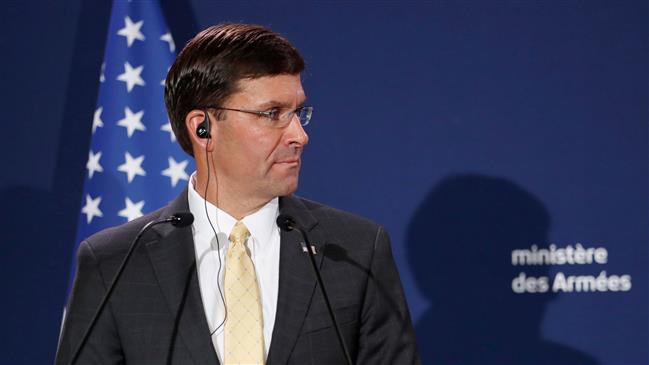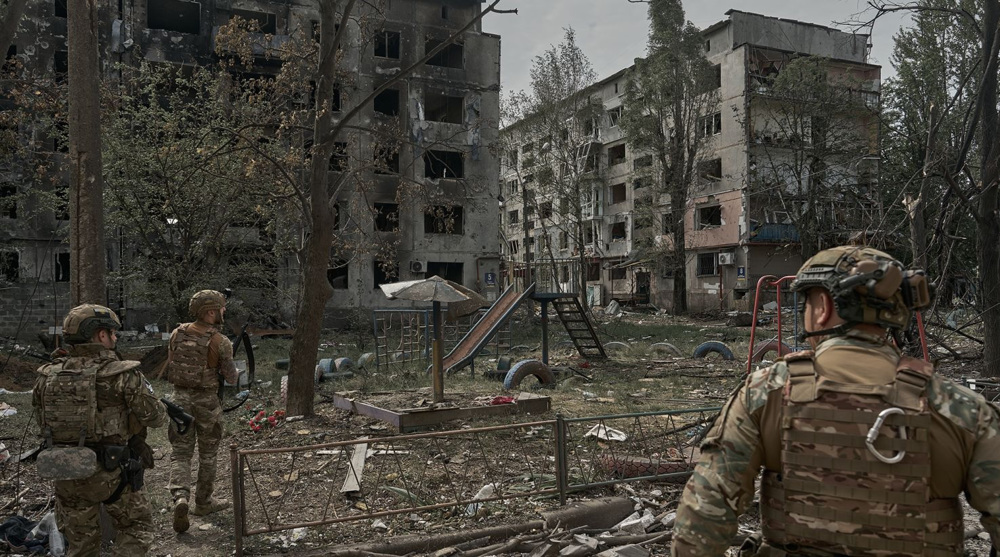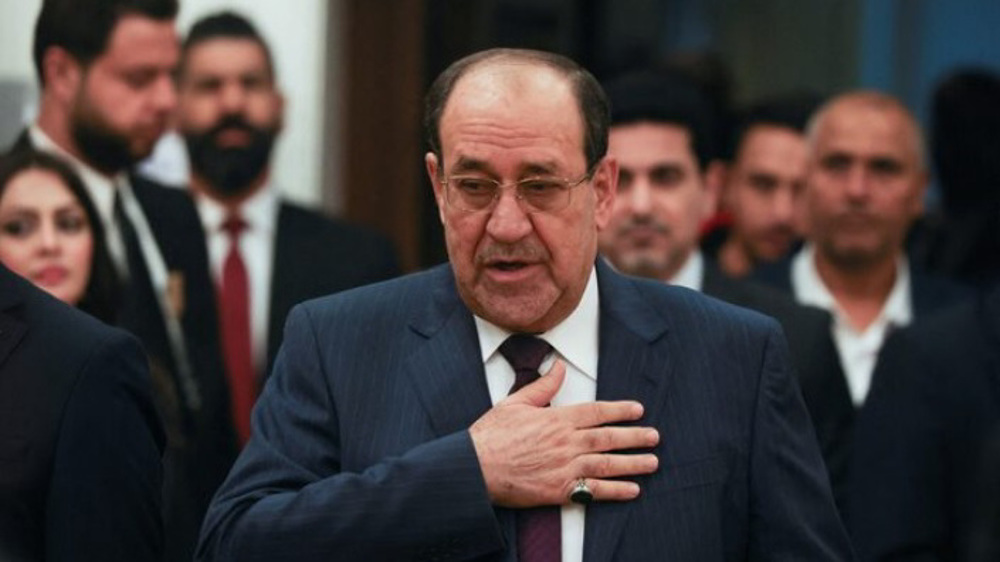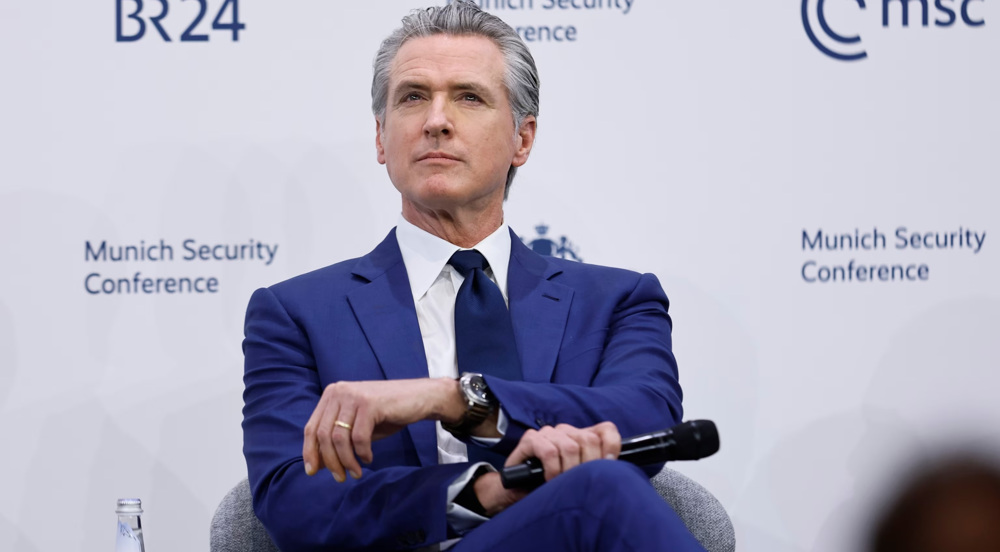US defense secretary warns Europe of growing threats from China, Russia
US Defense Secretary Mark Esper has warned European nations to tackle what he called growing security and economic threats from China and Russia, the latest sign that Washington has shifted its main focus from the US wars in the Middle East to confronting Beijing and Moscow.
“It is increasingly clear that Russia and China want to disrupt the international order by gaining a veto over other nations’ economic, diplomatic, and security decisions,” Esper said Friday at the Royal United Services Institute, a think tank in London.
“The United States is facing this challenge head-on, but if we are to preserve the world all of us have created together through decades of shared sacrifice, we must all rise to the occasion,” the new Pentagon chief said, his first major speech.
His comments are largely in line with his predecessors and the latest sign of America’s shifting priorities after more than a decade and a half of waging wars in the Middle East.
Esper accused China of using its economic power and stealing technology to gain greater global influence.
"The more dependent a country becomes on Chinese investment and trade, the more susceptible they are to coercion and retribution when they act outside of Beijing's wishes," he said.
Esper's claim that China is seeking to expand its international influence has been a common US government assertion since the administration of former President Barack Obama.
“I would caution my friends in Europe – this is not a problem in some distant land that does not affect you,” he added.
There are a growing number of disputes in the US-Chinese relationship, which include an escalating trade war, US sanctions on China’s military, and the US relationship with Taiwan, which Beijing considers a renegade province.
US President Donald Trump has imposed 25 percent tariffs on $250 billion worth of imported goods from China. Those US tariffs are now due to rise to 30 percent from October 1.
Another $300 billion of Chinese imports face 15 percent US tariffs, some of which began September 1, with the rest to start December 15.
Esper also emphasized the risks posed by Russia, including its reunification with Crimea in 2014, its actions in eastern Ukraine and involvement in Syria.
In a similar vein, Esper blasted Russia for arms control violations and for aggression in Europe, including its annexation of Crimea in 2014 and what he called Moscow's continued aggression in eastern Ukraine.
In a question-and-answer session after his prepared remarks, Esper said Russian ground-based cruise missiles aimed at Europe are "probably nuclear-tipped."
“To put it simply, Russia’s foreign policy continues to disregard international norms,” Esper said.
There are increasing concerns that Russia and the United States are headed towards an arms race after Washington formally pulled out of the Intermediate-Range Nuclear Forces Treaty (INF) pact last month, accusing Russia of violating it, allegations Moscow denied.
In response to a question about the US policy towards Iran, Esper acknowledged differences with some European allies but stressed that Trump plans to continue its "maximum pressure" campaign through economic sanctions.
He said the Trump administration’s goal is to pressure Tehran to renegotiate the 2015 nuclear agreement, from which Trump withdrew the US last year.
Many Europe countries consider Washington’s withdrawal from the accord a mistake. Iran's officials have repeatedly said the country will not renegotiate the nuclear deal with world powers.
Iran warns about consequences of normalizing violations of intl. rules
VIDEO | Gaza’s Ramadan: 1.7mn displaced struggle between hope and pain of war
Israel’s West Bank land seizures signal 'alternative homeland' threat: Ex Jordanian official
Tarique Rahman sworn in as Bangladesh’s new prime minister
UAE removes online references to Hind al-Owais after Epstein email revelations
Iran in no way seeking nuclear weapons: Pezeshkian
Oman: Iran-US indirect talks in Geneva achieve tangible progress
VIDEO | Press TV's news headlines











 This makes it easy to access the Press TV website
This makes it easy to access the Press TV website